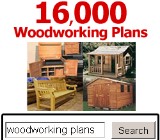Provide Shelter
If you're putting up a new shed, home office or garden workshop, try to leave a gap of at least 30cm between it and your garden fence or wall. This will create a potential nesting space for hogs looking to mate or hibernate. You can then lean a wooden board against the wall of your garden building to make a cosy shelter, or even buy a purpose-built hedgehog house. Add some fallen leaves and dried grass for bedding.
Create A Wildlife Corridor
Hedgehogs may travel several miles a night searching for food, nesting sites and mates, but frequently find their progress blocked by close-fitting garden fences and walls. Cutting a five-inch square gap at the base of your fence, or digging a small channel underneath, will give hogs the freedom they need to forage widely.
Feed Them Up
Help hedgehogs build up their reserves for winter hibernation by leaving out food. This can include sunflower seeds, chopped boiled eggs, crushed nuts, dried mealworms, sultanas and poultry-flavoured dog or cat food in jelly. You can also buy specialist hedgehog food. Avoid bread and milk as this can result in potentially fatal stomach upsets. Remember to provide a bowl of water.
Get Composting
Compost is ideal for feeding your garden plants as well as providing a comfortable home for hibernating hedgehogs. Flower and shrub beds covered in mulch created in your compost bin will attract woodlice, worms and beetles that hogs love to feed on, while log piles can provide homes for delicious insects such as centipedes and earwigs. Always check for signs of small animals, such as entrance holes and droppings, before disturbing the compost bin.
Let It Grow
Manicured, over-tidy gardens make it difficult for small creatures to find food and shelter, so don't cut the lawn too short or trim your hedge to within an inch of its life. Leave a corner of your garden to grow wild so that hedgehogs can use twigs, logs and fallen leaves to build their nests.
Growing many different types of flowers and shrubs is also helpful for hogs as it will increase their food source by attracting a wider range of wildlife. Raised beds are ideal for this - you can fill them with specialist compost to nurture plants that might not otherwise survive in your normal garden soil.
Go Green
Avoid using pesticides, particularly slug pellets, which can kill hogs if they eat slugs with pellets inside them. Instead, make a slug trap by burying half a grapefruit in a flower bed and filling it with beer.
Make Your Garden Safe
Hedgehogs have curious natures but poor eyesight, which can be a fatal combination. Help keep them out of trouble by covering any drains or ditches in your garden - and if you build a bonfire, light it straight away before any small creatures can take up residence. Ponds can be another problem. Use rocks, bricks or wooden boards to create a sloping edge so they can climb out safely. Lastly always check for hedgehogs before cutting long grass.
These small steps can make a big difference to the survival of our prickly friends, and give you a warm glow of achievement into the bargain. So why not give it a go?
Visit https://www.wonkeedonkeeforestgarden.co.uk/ for information on garden buildings, raised beds, greenhouses, planters and composters. You might also be interested in https://www.wonkeedonkeeforestgarden.co.uk/productindex/learning/ for more ideas on ways to improve your garden.
Victoria Fisher is an experienced technical author who writes for a range of websites on home and garden topics.





